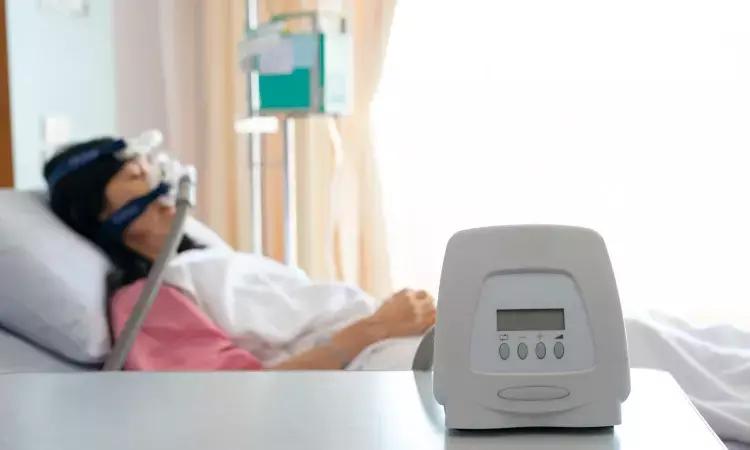- Home
- Medical news & Guidelines
- Anesthesiology
- Cardiology and CTVS
- Critical Care
- Dentistry
- Dermatology
- Diabetes and Endocrinology
- ENT
- Gastroenterology
- Medicine
- Nephrology
- Neurology
- Obstretics-Gynaecology
- Oncology
- Ophthalmology
- Orthopaedics
- Pediatrics-Neonatology
- Psychiatry
- Pulmonology
- Radiology
- Surgery
- Urology
- Laboratory Medicine
- Diet
- Nursing
- Paramedical
- Physiotherapy
- Health news
- Fact Check
- Bone Health Fact Check
- Brain Health Fact Check
- Cancer Related Fact Check
- Child Care Fact Check
- Dental and oral health fact check
- Diabetes and metabolic health fact check
- Diet and Nutrition Fact Check
- Eye and ENT Care Fact Check
- Fitness fact check
- Gut health fact check
- Heart health fact check
- Kidney health fact check
- Medical education fact check
- Men's health fact check
- Respiratory fact check
- Skin and hair care fact check
- Vaccine and Immunization fact check
- Women's health fact check
- AYUSH
- State News
- Andaman and Nicobar Islands
- Andhra Pradesh
- Arunachal Pradesh
- Assam
- Bihar
- Chandigarh
- Chattisgarh
- Dadra and Nagar Haveli
- Daman and Diu
- Delhi
- Goa
- Gujarat
- Haryana
- Himachal Pradesh
- Jammu & Kashmir
- Jharkhand
- Karnataka
- Kerala
- Ladakh
- Lakshadweep
- Madhya Pradesh
- Maharashtra
- Manipur
- Meghalaya
- Mizoram
- Nagaland
- Odisha
- Puducherry
- Punjab
- Rajasthan
- Sikkim
- Tamil Nadu
- Telangana
- Tripura
- Uttar Pradesh
- Uttrakhand
- West Bengal
- Medical Education
- Industry
Diurnal cortisol features linked to diabetes risk in hypertensive patients with sleep apnea

China: A recent study conducted by the Sleep Apnea and Hypertension cohort has found a potential link between diurnal cortisol features and the risk of incident Type 2 diabetes (T2D) in patients with hypertension and obstructive sleep apnea (OSA), published in the Journal of Clinical Endocrinology & Metabolism.
The hypothalamic-pituitary-adrenal (HPA) axis, which plays a crucial role in regulating the body's stress response, has long been associated with T2D. The study aimed to investigate whether HPA axis dysfunction is specifically associated with incident T2D in patients with hypertension and OSA.
The study involved 1478 patients with hypertension and OSA who underwent a cortisol rhythm test at baseline. A Cox regression model was used to evaluate the relationship between ln-transformed diurnal cortisol features and T2D risk. During a median follow-up of 7.0 years, 196 participants developed T2D.
The study concluded with the following clinical findings:
1. 196 participants developed T2D during the study.
2. Steep diurnal cortisol slope (DCS) was associated with decreased T2D risk.
3. Midnight cortisol was associated with increased T2D risk.
4. DCS and midnight cortisol were not associated with incident T2D in the women’s subgroup or participants with mild OSA.
The study suggests that diurnal cortisol features may serve as an early prevention target for diabetes in patients with hypertension and OSA, particularly for men or those with moderate to severe OSA. The findings may have implications for the development of new prevention strategies and interventions for T2D in this population.
The researchers added that “The study sheds light on the complex relationship between the HPA axis, diurnal cortisol features, and T2D risk in patients with hypertension and OSA. Further research is needed to confirm these findings and explore the underlying mechanisms.”
Reference:
Gan L., Li N., Heizhati M., Li M., Yao L., Hong J., Wu T., Wang H., Liu M., Maitituersun A., Diurnal Cortisol Features and Type 2 Diabetes Risk in Patients With Hypertension and Obstructive Sleep Apnea: A Cohort Study, The Journal of Clinical Endocrinology & Metabolism, 2023; dgad184, https://doi.org/10.1210/clinem/dgad184
Dr. Mahalakshmi Sivashankaran joined Medical Dialogues as an Intern in 2023. She is a BDS graduate from Manipal College of Dental Sciences, Mangalore Batch 2022, and worked as a Junior Resident at VMMC & Safdarjung Hospital at the Department of Dental Surgery till January 2023. She has completed a Diploma in Executive Healthcare management from the Loyola Institute of Business Administration, developing skills in Healthcare Management and Administration. She covers several medical specialties including Dental, ENT, Diagnostics, Pharmacology, Neurology, and Cardiology.
Dr Kamal Kant Kohli-MBBS, DTCD- a chest specialist with more than 30 years of practice and a flair for writing clinical articles, Dr Kamal Kant Kohli joined Medical Dialogues as a Chief Editor of Medical News. Besides writing articles, as an editor, he proofreads and verifies all the medical content published on Medical Dialogues including those coming from journals, studies,medical conferences,guidelines etc. Email: drkohli@medicaldialogues.in. Contact no. 011-43720751


